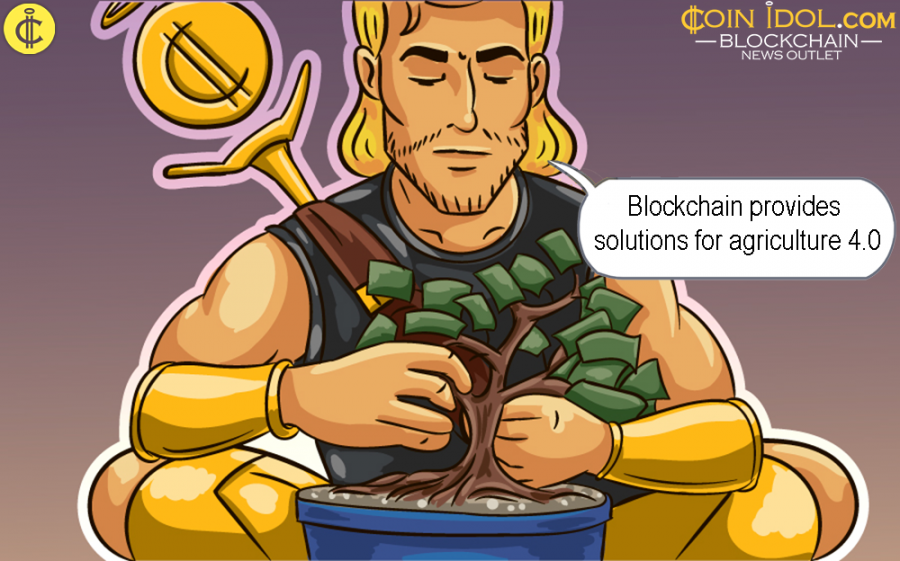Italy: Blockchain Provides Solutions for Agriculture 4.0
Updated: Jul 21, 2020 at 21:04

The latest research from the Smart Agrifood observatory at the School of Management of the Politecnico di Milano gives a clear outlook of the Italian market of Agriculture 4.0. Digital innovations such as Blockchain technology, the internet of things, smart contracts, artificial intelligence and others have entered the Agrifood chain with massive solutions which have triggered competitiveness in the overall industry. Therefore, it has increased the quality and traceability of Made in Italy food products.
Currently, there are more than 133 technological solutions for traceability operating within the Italian market. In addition, 44% of the firms that adopted them have advanced in efficiency, competence and effectiveness hence lowering significantly the time and costs, 01net reports.
Top 3 European Countries in Agricultural Production
Digital technologies have a significant impact on the efficiency, organization and effectiveness of food traceability exercises. 30% of firms which adopted digital traceability solutions registered a decrease in data entry errors and the major risk of altering (tampering). Around 27% registered a reduction in the costs needed to activate the traceability procedures and 21% was achieved for saving time during data collection.
Procedures and relationships in the supply chain also gain much from these solutions. In particular, regarding inventory management costs (15%), the decrease in food waste (14%) and the union of supply chain relationships (13%). At least 13% of firms also experienced a greater surge in sales. While more than 14% highlights the dire need to concentrate on solutions to advance certification processes.
According to an Istat report, Italy is in the top 3 European nations for agricultural production. Fruit and vegetables, viticulture and olive crops are the chief sectors of agriculture in Italy.
The aforementioned 133 technological solutions for food traceability existing on the Italian market are involved in the processes of definite identification, data acquisition, registration, analysis, integration and transmission. And 59% of these technical solutions are still "traditional": these convert data into digital, demanding an imperative human contribution.
The most extensive are software platforms for recording, integrating and processing data (62%). Followed by technological solutions which chain hardware and software tools (30%) and hardware tools like the internet of things (IoT) sensors and barcode readers (8%). Among the most forward-looking (42%), the highly applied are RFID (Radio-Frequency Identification, by 20%), followed by Cloud (19%), Big Data Analytics (14%) and IoT sensors (10%) respectively.
Interest among Italian citizens towards the application of blockchain technologies in the food supply chain is mounting extensively. Today, there are around 42 international and Italian projects recorded and mapped from the year 2016 to 2018, and the number more than doubled in 2018.
Standard Output by main type of farming, Italy, 2010
These are major initiatives that, in 24% of cases, are applied in different sectors. Specifically, 21% are dedicated to the meat supply chain (such as pork, chicken, beef, mutton, turkey, veal, rabbit and others, 17% to fruit (such as apple, pear, banana, orange, mandarin, grapefruit, peach, apricot, strawberry, cherry, pineapple, lemon, coconut, watermelon and others) and vegetables (such as lettuce, carrot, tomato, chicory, celery, pumpkin, aubergine, zucchini, radish, onion, garlic, parsley and others) and 10% to cereal such as millet, sorghum, rice and wheat. In 50% of cases, a strong leadership role was played by the actors in distribution and transformation.
Supply Chain Complexity
The simplest version of a supply chain in Italy includes a company, its suppliers and the clients of that firm. The chain could probably look like this: raw material producer, manufacturer, distributor, retailer and finally retail customer.
Meanwhile, Italy still needs more blockchain technology implementation. The era of energy, innovation and digitalization is greatly contributing to a significant transformation, as Coinidol recently reported.
The industry has experienced far-flung change due to blockchain since it has new tools to challenge and handle the issue of sustainability. Blockchain technology has the settings to effectively produce a peer-to-peer energy network.
Source text: https://it.coinidol.com/italia-blockchain-fornisce/
News
Coin expert
Price
Price
Price

(0 comments)